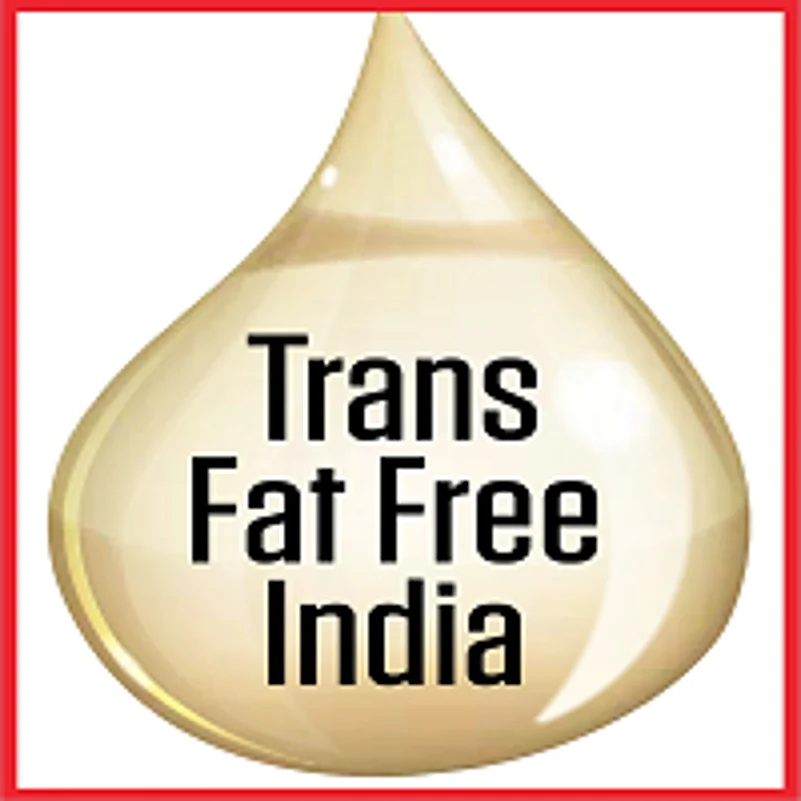
It was in the mid-1960s that the world started slowly waking up to the perils of fats in general, and saturated fat in particular, believes Dr Rajan Sankar, Director, Nutrition, for Tata Trusts. In an interview to Outlook Poshan, Dr Sankar said transfats, which are essentially partially hydrogenated oils used extensively by the food industry, was embedded into the food system because the world had become increasingly dependent on markets for food, and the consumption of processed and canned foods went up exponentially.
When the World Health Organisation called for a global ban on transfats by 2023, India announced that it would it do this a year before the deadline, by 2022. Subsequently, the Food Safety and Standards Authority of India issued two drafts capping trans fats to two per cent, but they are yet to be notified into law.
Trans fat is formed through an industrial process that adds hydrogen to vegetable oil, which causes the oil to become solid at room temperature. This partially hydrogenated oil is less likely to spoil, so foods made with it have a longer shelf life. It is found in most fried foods, baked goods such as cakes, pastries and pies, biscuits and rolls, and other processed foods. Trans fat not only increases the risk for heart attacks, stroke and type 2 diabetes, it also raises your bad cholesterol levels and makes you prone to other non-communicable diseases (NCDs) .
Why did it take so long to realise the dangers of transfats? “In hindsight we are so much wiser,” Dr Sankar replied with a twinkle in his eyes. “Introduced in India as the poor man's ghee, the government even added vitamin A to it, thinking that people depend on this and hence since their dependence on animal far is low, there would be deficiency of vitamin A their intake of this vitamin would be lower,” he said.
Also Read| Trans Fats: The Devil Is In The Details
“But as we learnt about the ill-effects of TFA, the government moved and has done their bit. In 2013, they brought in a regulatory regime to cap the limit at 10 per cent, and then in 2016 they moved to bring it down to 5 per cent . But the use of these oils are so extensive, in our savouries, sweets, bakery products, processed foods, that it takes time to completely eliminate it. The government has put forth its draft notifications, but it requires time, talking to industry, getting a regulatory system up to date, you need capacity building, laboratories for testing and so on.”
“But they made a bold decision, and said they will beat the WHO deadline a year ahead. Subsequently there has been a series of meetings with the industry, with academia, but I don't really know why there is this delay in getting this draft notified officially. We need to do it as early as possible if we plan to catch the deadline,” he said. “There's no reason for the delay. The WHO has recommended it, more than 13 countries in the world have already done it. We've been moving on that path, so whatever be the roadblocks, we must fulfil our commitment to eliminate this by 2022”.
Asked about why there were two FSSAI drafts on capping transfats, he says: “I don't know why this has been done. Ideally it should be just one. Two levels could create confusions and perhaps loopholes which people could use to beat the system. But I think we need to take another look at it see if we can have just one comprehensive regulation.”
However, “we don't know their stand. FSSAI is doing their best to make food wholesome for the population, and worked with the industry, academia, expert committees etc and others for this. So we must understand their point of view,’ he noted.
Could the COVID-19 pandemic impact the government’s ability to meet its the deadline on capping transfats?
“The priorities have changed for several reasons. A lot of people are worried about plight of migrant workers, people are jobless and looking for cheap food, processed foods, all of which have TFA. There is a danger that the regulatory authorities could let go because of other compelling priorities, or that the industry could see this as an opportunity to fulfil that demand. So there should be a group that keeps putting pressure on the ministry health and other relevant bodies to ensure that we don't miss this deadline,” Dr Rajan said.
But given the clear and present danger that it poses, why is transfats not a topic of public discussion?
“NCDs as a whole as is still not being seen as a problem of nutrition as of today. Our focus has always been on hunger and undernutrition. Nutrition has three dimensions, one where you eat less, which is under nutrition, the other is where you eat more than what is required, and hence become fat or obese, and the third, which actually straddles these two, is the lack of minerals and vitamins, which happens in both cases,” he said. “We continue to have a massive problem with undernutrition, but we also have started having a problem with overnutrition, which is called the double burden. While the linkage between obesity and NCDs is well established, what is not so well known is that children who are undernourished also prone to NCDs later in life.”
So while regulations is one thing, public support based on a clear understanding of the problems is a must if we are to address this problem, he concluded.


























